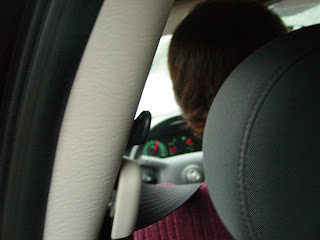are we more violent now?
 You may be quick to assume that violence is increasing around you. Heck, these are the days of the Iraq War and routine terrorist attacks right? Violence seems to be everywhere in our news, music, movies and games. Violence in the media might even be the problem. You might hold the view that men are naturally born peaceful and are corrupted by modern society (the Noble Savage). This also seems to be a popular view among many politicians and academics. But is this true?
You may be quick to assume that violence is increasing around you. Heck, these are the days of the Iraq War and routine terrorist attacks right? Violence seems to be everywhere in our news, music, movies and games. Violence in the media might even be the problem. You might hold the view that men are naturally born peaceful and are corrupted by modern society (the Noble Savage). This also seems to be a popular view among many politicians and academics. But is this true?
Steven Pinker has written an excellent essay on this topic, which is featured on the Edge website. In it, he argues that violence has actually been decreasing as time has gone by, and, in fact, humans have become "kinder and gentler." He presents evidence from recent anthropological studies to support his argument:"It is true that raids and battles killed a tiny percentage of the numbers that die in modern warfare. But, in tribal violence, the clashes are more frequent, the percentage of men in the population who fight is greater, and the rates of death per battle are higher. According to anthropologists like Lawrence Keeley, Stephen LeBlanc, Phillip Walker, and Bruce Knauft, these factors combine to yield population-wide rates of death in tribal warfare that dwarf those of modern times. If the wars of the twentieth century had killed the same proportion of the population that die in the wars of a typical tribal society, there would have been two billion deaths, not 100 million."
He also explains why many people think that modern times are more violent, even though the evidence points to the contrary. This actually has a lot to do with Tversky's availability heuristic that I wrote about the other day. Again, the availability heuristic is a cognitive illusion that makes us think an event is likely to occur just because we can easily recall similar events happening before. So, people might think that we are more violent today, just because it's easy to remember the mugging that was reported in the news last night.
Lastly he presents four possible theories for why humans are becoming less violent. To sum them up real quick: 1) we can't take the law into our own hands anymore, we have centralized governments for that, 2) as technology improves our lives, we put more value on living, 3) the importance of cooperation in trading goods and dividing labor leads us to the idea that our neighbors are more valuable alive than dead and finally 4) we evolved a sense of empathy that only applied to family members, but over time our moral circles slowly encompassed whole tribes, nations, both sexes, the various ethnicities and even animals . . . in other words, our moral circles are getting bigger and bigger.
I liked his essay and I think that I got a lot out of it, for instance I didn't know that the favorite pass-tiime of 16th century Paris was cat-burning:"In sixteenth-century Paris, a popular form of entertainment was cat-burning, in which a cat was hoisted in a sling on a stage and slowly lowered into a fire. According to historian Norman Davies, '[T]he spectators, including kings and queens, shrieked with laughter as the animals, howling with pain, were singed, roasted, and finally carbonized.'"
That's pretty sadistic. I'm sure there's some variability around the world as far as human and animal rights are concerned, but I can't imagine anyone wanting to do that today. I mean, no one's ever had to tell me that burning a cat was wrong. I've always kind of just assumed that cats had the right not to be burned alive and all. Well, anyways, if you are interested in the topic of the history of violence in humanity, definitely check out Pinker's essay!


No comments:
Post a Comment